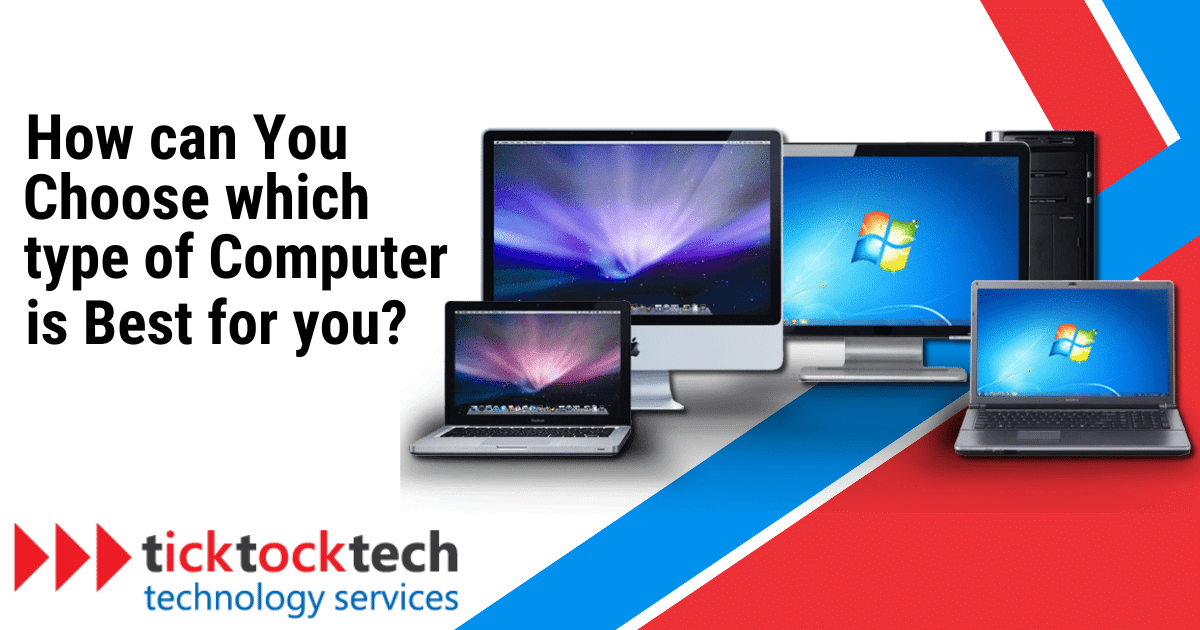When getting a new or replacing computer, you might get confused as to which to buy. This is 2023, and there are many brands of computers with different kinds of specifications. But, how do you know the one best for you? The first thing anyone getting a computer, either a laptop or desktop, is to define their purpose. The laptop or desktop computer you choose depends on what you want to use them for. Knowing well the usage projection will bring about the brand, the specifications, and the budgets you should prepare for.
Every brand has its specialties and top-notch functional focus. Like sleekness or portability to Dell XPS and MacBook Air. Specifications make the purpose and capability obvious to the intended users. You can get a wide range of good specifications of a different brand that satisfies your need, this is where the budget factor comes in. The budget overall defines what to go for, and what range to look at while fulfilling the other two. Before you choose a computer, use these comprehensive Steps by step criteria that will completely Guild your choice.
1. Define the Purpose you want the Computer to Serve
The first thing to do before going to check out which computer to choose is to define your purpose. This will give insight and summarize the kind of specifications and brands to look out for. Selecting randomly could make you either spend more or get a computer you won’t be satisfied with in the long run. The purpose of getting a laptop or a desktop could be for studies, gaming, working, and other reasons. Here are the most common purposes different computers serve in different categories.
Education and Learning purposes
Having a computer is important for both education and learning. Computers are incredibly useful tools for learning, researching, and gaining access to instructional information in the field of education. They allow students to do tasks, work with classmates, and take part in online classes. Teachers make use of computers to improve their instructional strategies, provide interactive courses, and include students in multimedia learning.
Related: Best Laptops for College Students in 2023
Learning becomes more dynamic with computers, enabling users to study various topics, learn new skills, and increase their knowledge in various professions. Computers also enable remote learning, making it possible to access educational possibilities from anywhere. Computers give people the tools they need to pursue lifelong learning and realize their full academic potential through interactive platforms, online libraries, and instructional applications.
Work and Productivity
Computers are becoming a need for productivity and work. They make it possible for professionals to write documents, analyze data, manage projects, and interact with coworkers and customers. Especially in this tech age of working at home and having to connect with teams and have meetings.
Tasks may be reduced, deadlines can be fulfilled, and efficiency can be improved with the help of productivity software and collaboration solutions. Computers have altered the way we work, enabling office workers and independent contractors to be more coordinated, productive, and linked in their job. Computers enable people to thrive at work and reach their professional goals, whether they are producing reports, doing research, or managing financial responsibilities.
Gaming
Not all computers are made for gaming, but all gaming computers can perform other purposes, except for sleekness of course. A large portion of the population uses computers only for gaming, entering virtual worlds, playing with others online, and taking part in interactive activities. To offer lag-free gameplay and amazing images, gaming PCs are outfitted with strong hardware, high-resolution screens, and sophisticated graphics capabilities.
See Also: 10 Best 17-inch Gaming Laptops for 2023
To provide the best gaming experience, gamers frequently look for PCs with powerful CPUs, lots of RAM, specialized graphics cards, and high refresh rates. They could also spend money on controllers, mice, and other gaming peripherals to improve their ability to control their games. Computer gaming provides a broad variety of genres, from action-packed shooters and immersive role-playing games to strategic simulations and multiplayer online combat, appealing to varied gaming preferences and interests.
Creativity and Multimedia Purposes
Particular computers offer potent instruments for releasing artistic expression, whether it be in graphic design, digital art, video editing, music creation, or photography. To produce spectacular graphics, alter photos, edit films, compose music, and bring their inventive ideas to life, creative people rely on specialized software and tools.
Related: Best Laptops for Video Editing in 2023
Computers enable artists to explore, hone their skills, and share their creations with a worldwide audience. Computers are a need for anybody pursuing creative activities and exploring the enormous universe of multimedia possibilities due to their variety and capability.
Personal Organizations Use
Computers give people strong tools to effectively arrange their daily life. Users may organize their schedules, make to-do lists, set reminders, save crucial papers and data, and keep up with digital picture and video archives using a variety of tools and programs.
In case you wonder: Dell vs HP, which is better?
A person may stay organized and stay on top of their obligations and duties by using personal organization software to streamline chores, increase productivity, and keep track of crucial information. Computers provide a single and practical platform for efficiently managing personal organization, including note-taking applications and digital calendars.
Programming and Engineering Purpose
Software for engineering and programming may not run well on all systems. For programming, debugging, and testing software applications, some computers offer the required tools and software development environments. Engineers create and model complicated systems, such as structures, bridges, and electrical circuits, using computer-aided design (CAD) software.
See Also: Best Desktops for Programming in 2023
Professionals in the fields of programming and engineering depend on computers to create novel solutions, analyze data, automate procedures, and realize their ideas via the creation of software and hardware. Computers enable professionals in these sectors to produce ground-breaking technology and effectively handle challenging challenges thanks to the correct programming languages, frameworks, and engineering tools.
2. Choose The Specification that Satisfies the Purpose
Whatever purpose you want to get a computer for, you have to know the best specifications that will work well with it. These specifications can be identified using the capacity of some hardware and software features. These features include RAM and ROM storage, CPU(Processor), GPU for graphics, Operating system (Mostly Windows or Mac, while Linux for Programmers), Display features, Design(majorly portability and connection option), Battery life, and Cooling system(for gaming).
A. Gaming Computer Best Specification
To achieve the best possible gaming experience, it is essential to choose the proper computer requirements. The important criteria to pay attention to are listed below, along with the suggested values or capacity ranges for each:
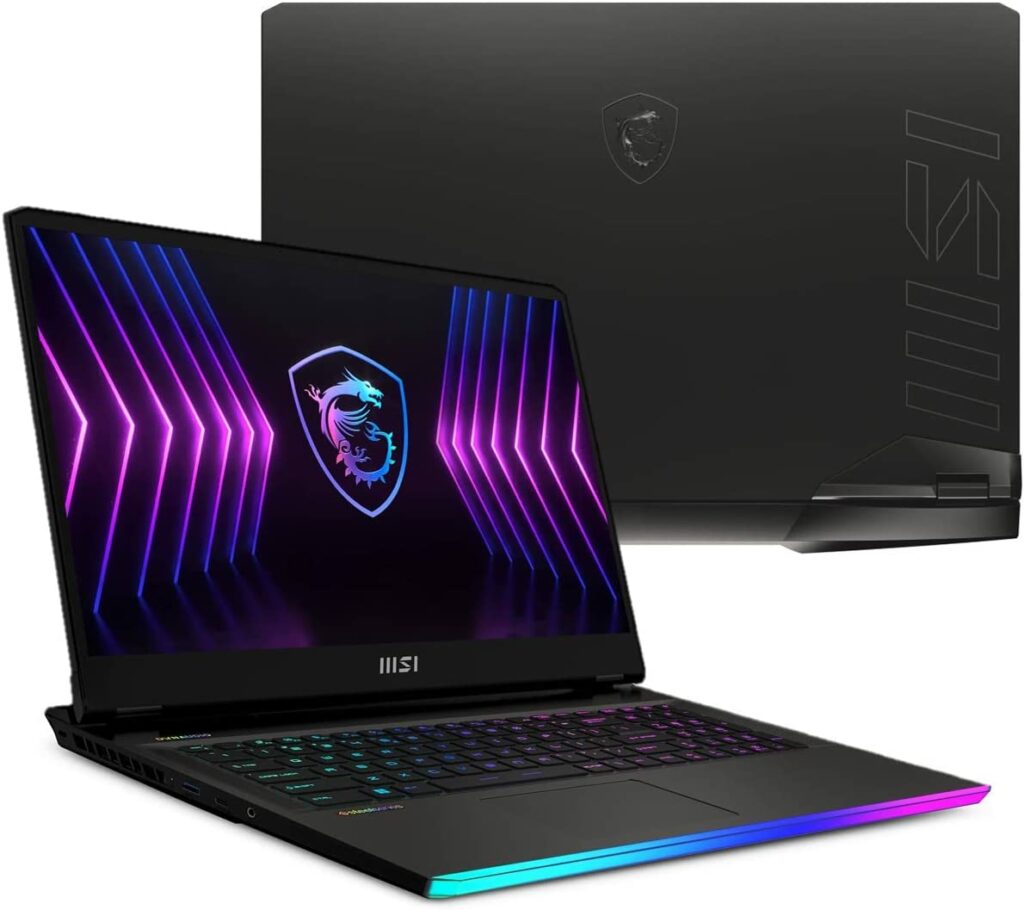
Processor (CPU): A strong CPU, such as an AMD Ryzen 5 or 7 or an Intel Core i5 or i7, is what you should look for in a processor (CPU). Excellent gaming performance is offered by these CPUs.
Dedicated graphics card: Spend money on a GPU such as the AMD Radeon RX or NVIDIA GeForce GTX series. To play at 1080p resolution without lag, aim for at least 4GB of VRAM. Higher-resolution performance is improved by larger VRAM capacity.
Storage: Solid-state drives (SSD) with a minimum capacity of 256GB are a good option for quicker loading times. It can be used in conjunction with a bigger conventional hard disk drive (HDD) to increase storage capacity.
Display: For better gaming, get a display with a high refresh rate (such as 144Hz or 240Hz). To get a decent mix between visual quality and performance, think about using a resolution of either 1080p (Full HD) or 1440p (Quad HD).
Keyboard and Mouse: For a more immersive gaming experience, select gaming peripherals with features like mechanical keys, programmable buttons, and adjustable lighting.
Good Cooling system: A gaming laptop must have at least 2 fans running internally. Gaming requires much usage of computer power, especially laptops. To have glitch-free gaming, the fan must be working to moderate the temperature.
See: The best gaming laptops for 2023
B. Best Laptop Specifications for Generals Use (Education, Learning, and Work)
A computer with balanced characteristics can deliver an easy-to-use and effective experience for browsing the web and general use. For each standard, the suggested values or capacity range are shown below:
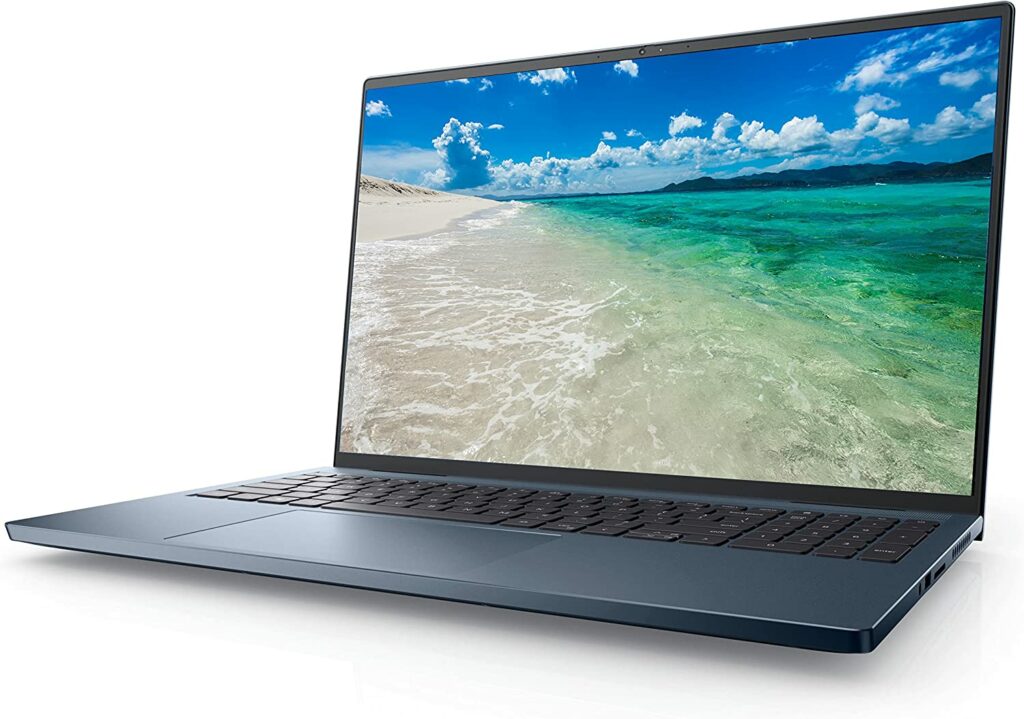
Processor: A processor with at least 4 cores and a base clock speed of 2.5 GHz or greater is what you should seek out. For ordinary use and online browsing, choose a processor from the AMD Ryzen 5 or Intel Core i5 family.
RAM (Random Access Memory): Aim for at least 4GB of RAM, which is adequate for managing numerous browser tabs, fundamental productivity activities, and common programs. Even more fluid multitasking may be provided by having 8GB or more.
Storage: Choose a solid-state drive (SSD) with a 128GB or higher capacity. A speedier boot time and quicker access to data and programs are two benefits of using an SSD, which boosts your computer’s overall performance.
Display: For sharp and clear graphics, look for a display with a resolution of at least 1080p (Full HD). Think about the screen size that best meets your needs; laptop screens normally range from 13 to 15 inches.
Graphics: Most computers’ integrated graphics, which are often located there, are adequate for everyday usage and web browsing. Unless you want to indulge in graphics-intensive activities like gaming or video editing, dedicated graphics cards are not required.
Battery life: Choose a laptop with a battery life of at least 6 hours so that you may use it while on the move without having to often recharge it.
C. Best Laptop Specifications for Engineering and Programming
A computer with precise specs is needed for programming and engineering operations to handle demanding software and intricate code. Depending on the programming languages, software tools, and engineering applications you employ, there could be different requirements. To guarantee the best performance, always review the system requirements listed by the program or tools you want to use. The following are the main requirements and suggested value ranges:
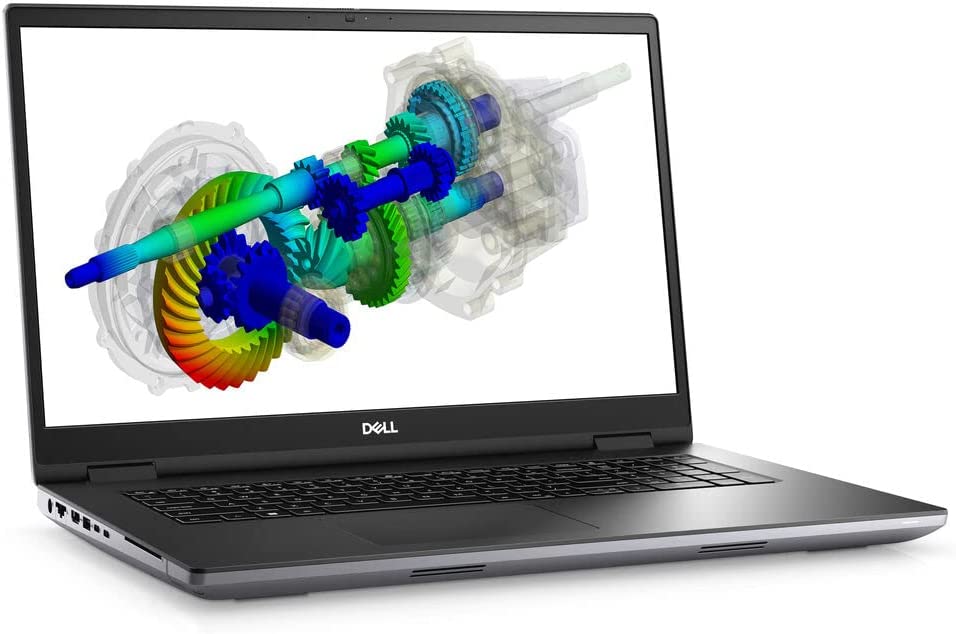
Processor (CPU): Choose a multi-core processor with a high clock speed, such as an Intel Core i5 or i7 or an AMD Ryzen 5 or 7. Aim for at least quad-core processing power.
RAM: To ensure seamless multitasking, use at least 8GB of RAM. Consider using 16GB or more for programming or engineering projects that need more work for enhanced performance.
Graphics Card (GPU): A specialized graphics card may or may not be required, depending on the specifications of your particular programming or engineering software. An integrated GPU should be adequate for the majority of programming activities. However, if your work requires 3D modeling, rendering, or GPU-accelerated programs, you should think about getting a dedicated GPU from NVIDIA or AMD with at least 2GB of VRAM.
Storage: Select a solid-state drive (SSD) with a minimum capacity of 256GB. Comparing traditional hard disk drives (HDD) to SSDs, you can retrieve data more quickly and have better performance. If you deal with huge files or need to save a lot of data, you might want to consider greater storage capacity.
Display: Look for a screen with a high resolution and decent color accuracy. It is advised to use a monitor with a least resolution of 1920×1080 pixels (Full HD), but if your job requires intricate design or visualization, you may want to use a display with a higher resolution, such as 2560×1440 pixels (QHD) or 3840×2160 pixels (4K).
Connectivity: Make sure your computer has enough USB ports (ideally USB 3.0 or above) to connect peripherals and external devices. For connectivity possibilities, take into account the availability of additional connectors like HDMI, DisplayPort, and Ethernet.
D. Best Laptop Specifications for Media, Video Editing, and Graphics
A computer with the correct specifications may improve your watching, editing, and gaming experiences when it comes to multimedia and entertainment. The following are the important considerations, along with the suggested values or capacity range for each:
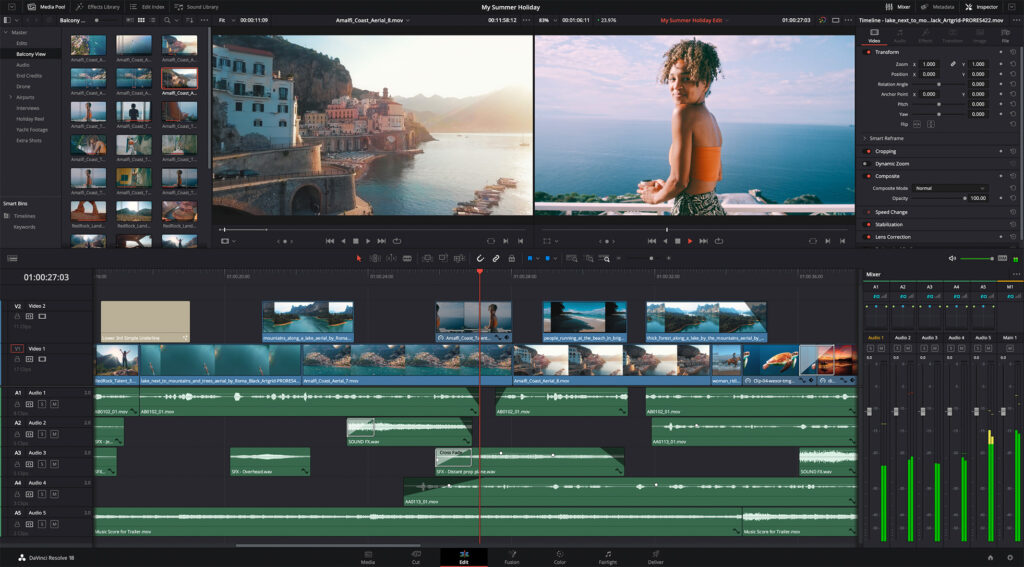
Processor (CPU): Look for a multi-core processor with a clock speed of at least 2.5 GHz in the CPU (Processor). Popular choices include AMD Ryzen 5 or 7 CPUs or Intel Core i5 or i7 processors.
GPU (Graphics Card): Choose a dedicated GPU with a least 4GB VRAM for lag-free graphics rendering and gaming performance. Good options include AMD Radeon RX series and NVIDIA GeForce GTX or RTX series.
RAM (memory): For flawless multitasking and multimedia playing, aim for at least 8GB of RAM. Consider using 16GB or more if you often edit videos or deal with huge media files.
Storage: It’s advised to combine SSDs and HDDs. A 1TB or greater HDD gives enough storage for multimedia files, while a 256GB or 512GB SSD enables quick access to regularly used apps and speedy startup times.
Display: Go for a screen that has at least Full HD (1920×1080) resolution. Vibrant colors and broad viewing angles are offered by IPS or OLED screens. For a more immersive experience, think about going with a screen size of 15 inches or above.
Audio: As video editing requires good sounds, look for laptops with sound systems or speakers of the highest caliber, such as those equipped with Dolby Atmos or other cutting-edge audio technology. For a better audio experience, think about utilizing headphones or external speakers instead.
E. Best Laptop Specifications for Content Creation
Having the appropriate specs is crucial for handling difficult jobs in content development in an effective manner. The particular needs may change depending on the difficulty of your content development jobs; these capacity ranges are only general guidelines. The following are the main criteria to pay attention to:

Processor (CPU): Select a multi-core processor with a high clock speed as the CPU. Smooth performance requires a CPU with four cores or more, such as an Intel Core i7 or AMD Ryzen 7.
Graphics Card (GPU): A specialized graphics card is necessary to do jobs that need a lot of visuals. Choose a GPU with at least 4GB of VRAM, such as the NVIDIA GeForce GTX 1660 or AMD Radeon RX 5600 XT, to perform video editing and 3D rendering.
RAM: Aim for a minimum of 16GB of RAM because creating content may be resource-intensive. To ensure seamless multitasking and editing for more demanding tasks, think about using 32GB or even 64GB of RAM.
Storage: It is advised to choose a fast SSD for system and program files and a bigger HDD for media files. For quicker startup and application loading, aim for an SSD with at least 500GB, and for enough storage, aim for an HDD with at least 1TB.
Display: An accurate color reproduction display with high resolution is essential for content development. Look for a monitor with at least Full HD (1920×1080) resolution, and think about getting an IPS screen for improved color accuracy and broader viewing angles.
Connectivity: Ensure the computer has a variety of USB ports (ideally USB 3.0 or higher), an HDMI or DisplayPort for connecting an external display, and an SD card reader for quick file transfers from cameras.
3. Budget and Prices of the Computer Specification that Satisfies your Purpose
The cost is a major factor in choosing computer specs that meet a user’s needs. Depending on their functionality and brand, computer components might cost different amounts. To obtain the greatest deal for your money, it’s crucial to compare pricing across different merchants and brands. It’s important to keep an eye out for sales and discounts because prices might change depending on current market conditions. Additionally, think about potential upgrades in the future. By purchasing a system with a little higher price tag upfront, you may wind up saving money over time by avoiding the need for costly upgrades right away. There are 3 pricing categories, depending on their capacity level and range
Entry-Level Price Range: Typically, entry-level computers cost between $300 and $700. These more economical choices can meet your needs for fundamental computing.
Mid-Range Budget: Mid-range PCs typically cost between $700 and $1,500. Better performance and more sophisticated features can be anticipated with a little greater expenditure.
High-Range Budget: High-end PCs typically start at approximately $1,500 and can cost well over $3,000 or more. These high-end systems feature top-notch performance, cutting-edge hardware, and innovative innovations.
4. Select the Computer Brand that Meets your Budget
It’s crucial to take dependability, performance, and cost into account when choosing a computer brand that fits your budget. Research and compare choices to discover the perfect match because different companies provide a range of features and pricing points. Choose companies with a reputation for quality and customer service since you’ll have a better overall experience.
See: Top Reliable Laptop Brands for 2023
To make an informed choice, take into account elements like warranty coverage, upgrade possibilities, and customer reviews. Aim to pick a brand that delivers the ideal combination of cost and quality for your budget, keeping in mind that a greater price does not always imply the best performance. You may choose a computer brand that not only matches your budget but also caters to your demands by carefully taking into account these variables.
5. Choose A Reliable Seller
There are a few crucial factors to bear in mind when picking a trustworthy seller for your computer purchase. Start by looking for reliable, long-standing sellers who have a history of happy clients. You may evaluate their dependability by reading reviews and looking at ratings. Second, think about their post-sale assistance and customer care. In the event of problems with your buy, a dependable vendor will offer quick and beneficial support.
Additionally, check to see if the vendor has return or warranty policies that will safeguard your investment. This gives you peace of mind and guarantees that you can handle any conceivable issues. Last but not least, check prices and offers from other sellers to make sure you’re receiving the greatest bargain possible. Always remember that selecting a trustworthy seller is essential to ensuring a positive shopping experience and receiving high-quality goods.
6. Inquire About the Warranty
Asking the manufacturer’s warranty questions is crucial when buying a computer. The warranty is a promise that covers any potential flaws or faults in the computer’s hardware or parts. You may make sure you have recourse in the event your computer has problems by being aware of the warranty’s provisions.
It is crucial to find out the warranty’s term, the kinds of fixes or replacements it covers, and any exclusions or requirements that could be necessary. Making an informed decision with the knowledge that your investment is safe is made easier with the aid of this information. Asking about the warranty also gives you a better idea of the degree of support and help you may anticipate from the supplier.
7. Check Properly and Test if Buying a fairly Used Computer
It’s essential to properly inspect and test a used computer before buying one. Check the device’s physical condition first, looking for any obvious wear or signs of damage. Make that the machine is using a reliable operating system and up-to-date applications. Perform performance tests on important hardware parts, such as the processor, RAM, and storage devices.
Verify the functionality of all ports and connectivity options. Check the display for any problems like flashing or dead pixels, and check the audio output for clarity. Examine the battery’s condition and ability to keep a charge, particularly if it is a laptop. Ask the vendor about any remaining warranties and their return policies.
Finally, do some market research on the particular model to make sure you’re receiving a reasonable price given the age, features, and general state of the machine. You may make a better-educated choice and lower your chance of acquiring a defective or unreliable product by carrying out rigorous inspections and testing.
FAQs
Consider factors such as intended use, portability requirements, processing power, storage capacity, budget, operating system compatibility, connectivity options, and display quality.
Consider your requirements for peripherals such as monitors, keyboards, mice, printers, and speakers, and ensure compatibility with your chosen computer.
The choice between a new or used computer depends on your budget and requirements. While a new computer offers the latest features and warranty, a used computer can be more affordable. When buying used, ensure you check the condition and specifications, and test the computer thoroughly before making a purchase.
Conclusions
In conclusion, it’s important to carefully evaluate your demands and tastes while picking the proper kind of computer. You can decide if a desktop, laptop, or tablet is ideal for you by taking into account aspects including intended usage, mobility needs, processing power, storage space, and price. The performance will be at its best if you are aware of how important hardware requirements are and choose the right computer for the jobs you want to do. Your computer experience will also be improved by taking into account elements like network choices, display quality, and operating system compatibility.

